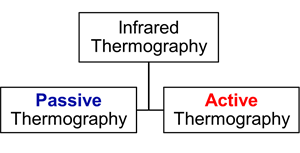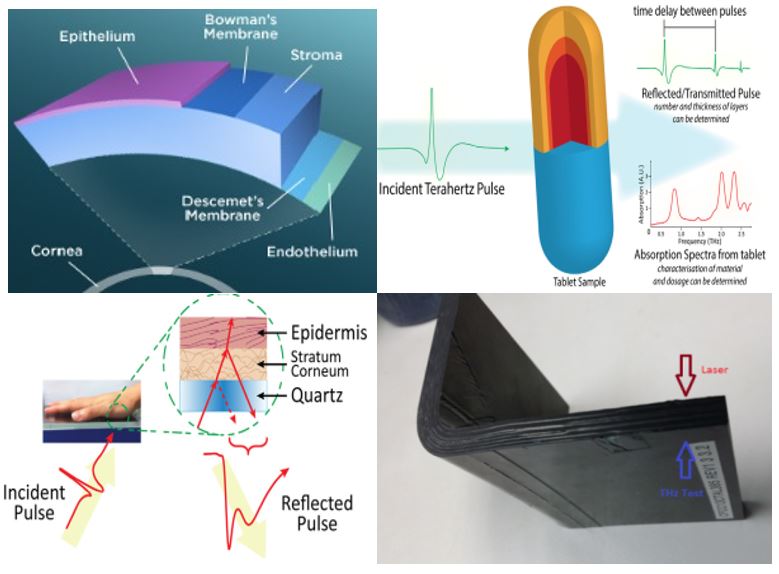Structural Non Destructive Testing & Evaluation
By leveraging material knowledge & properties, the team develops advanced infrared thermography (IRT) and terahertz (THz) techniques to reveal hard-to-detect defects and make the detection easier & inspection more efficient.
Areas of research:
- Transient thermography
- Lock-in thermography
- Flash thermography
- Laser thermography
- Induction thermography
- THz CT broadband imaging
- THz narrowband compact imaging
Capabilities
1. Advanced infrared thermography (IRT) for detection and inspection
Problem statements or industry needs
- New materials (e.g. polymer composites) require the use of new non-destructive testing (NDT) and inspection techniques
- Conventional NDT techniques (visual, radiography, ultrasonic, liquid/magnetic penetrants, eddy current) are unable to fulfil the increasing industrial demand:
- Rapid inspection of large components
- Sub-surface or hidden defects detection
- Non-contact, non-invasive technique for moving or dangerous components
- Easy-to-understand results or readout
- Stricter safety requirements on operating environment
Technology Overview
- Detection & imaging of heat signature
- Can be passive or active thermography

Technology Benefits
- Large inspection area (~m2)
- Short inspection time (~sec)
- Non-contact & non-radiative
- Can detect sub-surface defects
- Easy deployment on other technology platforms, e.g. drones & robots
Value proposition
- In-house capabilities in many forms of thermography techniques
- Self-proprietary data & image processing & fusion algorithms
- Whole suite of infrared (IR) techniques & configurations
- Experience working in various industry
- Certified thermographers
Applicable industries
- Building & construction
- Marine, offshore, oil & gas
- Aerospace & land transport
- Electronics & semiconductors
- Manufacturing & process control
- Urban sustainability
.png?sfvrsn=2f8baea1_2)
2. Advanced terahertz (THz) for detection and inspection
Technology Overview
- Electromagnetic radiation in the frequency range from 0.1 to 10 THz.
- 1 THz = 300 μm = 33 cm-1 = 4.1 meV
Technology Benefits
- Fast instant imaging
- Non-contact & non-radiative
- Can penetrate deeper into materials as compared to VIS and IR
- Sensitive to chemical structure, i.e. fingerprint spectra of materials
Applicable industries
- Aerospace NDT
- Ophthalmology application
- Medicine/Illicit Drugs Identifications
- Food analysis

Highlights / Achievements
.png?sfvrsn=2e0d9e1_2)
.png?sfvrsn=75b498a9_2)
Contact
A*STAR celebrates International Women's Day

From groundbreaking discoveries to cutting-edge research, our researchers are empowering the next generation of female science, technology, engineering and mathematics (STEM) leaders.
Get inspired by our #WomeninSTEM
.png?sfvrsn=b59474e9_3)